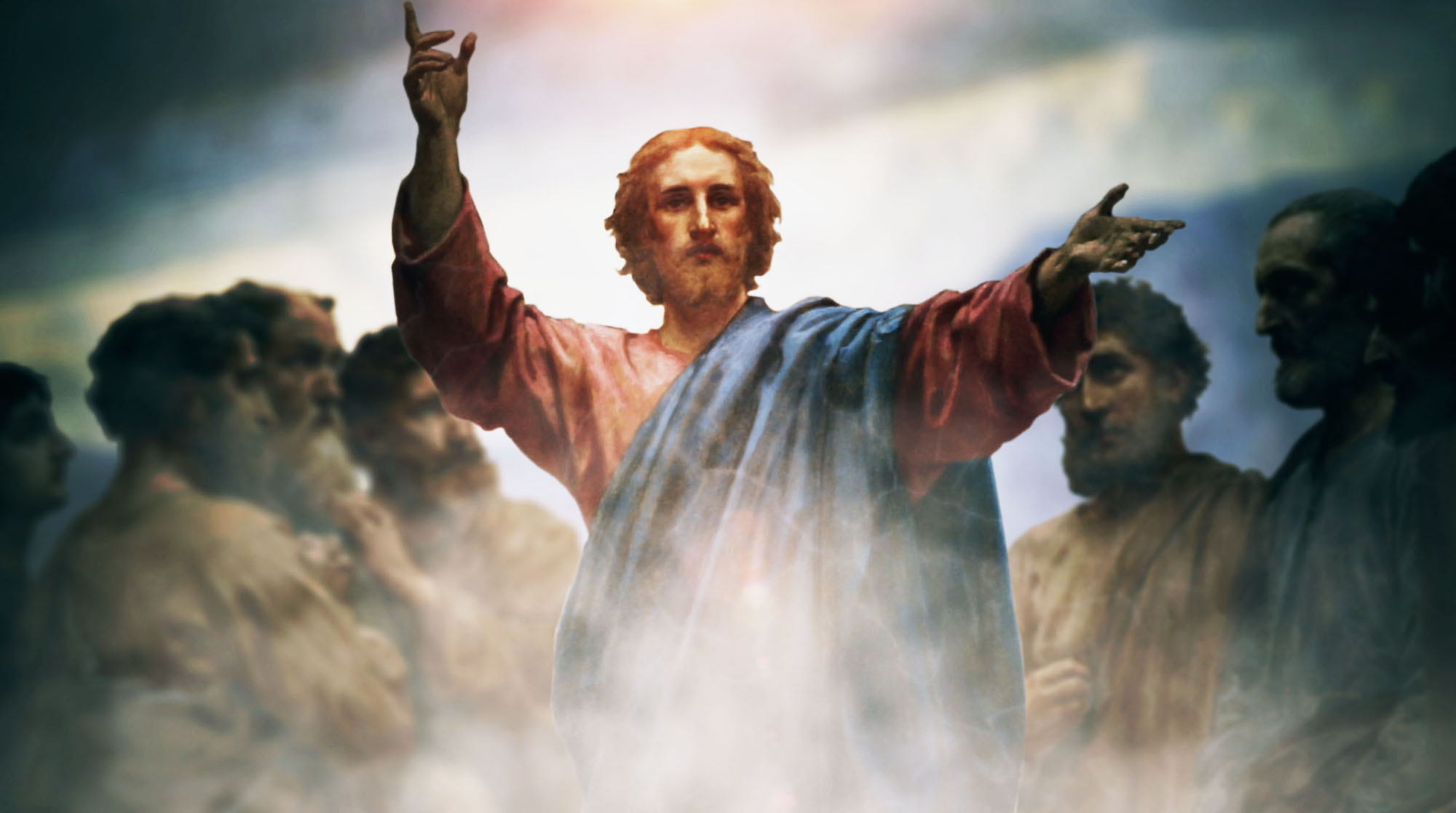By: T. J. Gentry, Ph.D., D.Min. | October 1, 2023
One of the first passages of Scripture I committed to memory is Matthew 28:18-20, appropriately referred to as the Great Commission. It is only recently, however, that I can say I have a notion of what the substance of that passage—making disciples of the nations—requires of God’s people. What I now know and what the following reflections hopefully demonstrate is that making disciples of all nations entails missional thinking and living as individuals and churches. Building on a proper understanding of what missional means, individuals and churches must embrace a missional paradigm for ministry that is balanced and develops leaders accordingly. I suspect that when this happens, the Great Commission will become more than a memory verse; it will become a reality.
Great Commission Reflection One: What Missional Means
As I think about the meaning of missional, my mind is initially divided between two questions. One, what is a missional individual? Two, what is a missional congregation? I will answer the second question first.
A Missional Congregation
A missional congregation perceives and employs itself as “on a mission. . . . [with an] identity [that] is rooted in what they do apart from a church service or building” (LOP 39 2004, 1). I confess that this is a challenging idea for me to embrace, primarily since most of my years in ministry have been centered on the church.
It is not that missions did not matter, but I perceived missions as something I supported or engaged in (albeit briefly) to establish a church where others would come to receive ministry. This notion of living missionally in a way that seeks to provide sustained ministry apart from the church’s walls was and is foreign; I agree with it, but I have no real experience with it. So, a missional church is a church that goes to the people rather than expecting that the people should come to them.
A Missional Individual
This leads to the first question asked above regarding a missional individual. It may seem redundant to ask since a missional church has already been defined. Still, I must continually remind myself that what the church is, ideally, is not necessarily what the individual member is. A church may be missional but not have missional individuals, at least not very many of them.
So, when I ask what a missional individual is, I think of a person who is self-consciously committed to the church’s broader mission. This person is rowing in the same direction as the group, a world Christian concerned with what they can do outside the church walls rather than what they can get inside those walls. Without these individuals, is it possible to have a functioning missional church? I do not think so, especially since the work of a missional congregation requires each person’s effort to succeed. This leads me to consider what the ministry of such a church looks like.
Great Commission Reflection Two: A Missional Paradigm of Ministry
When I first read that a missional church chooses to abandon the Constantinian ministry model (Ibid., 2.1), I thought, “I was not aware such a model was in existence.” I have lived with the model so long that I did not realize anything else. Ultimately, the implications of a non-Constantinian model are far-reaching.
Emphasis on “Out There” Rather than “In Here”
If the ministry is out there rather than in here, then the church (at least my experience of it) must rethink how ministry occurs. This is precisely what I find in missional churches. The ministry paradigm has been reviewed, and a flexible, pragmatic approach to structure that values organization but refuses to elevate one organizational model over another comes forth (Ibid., 2.9). (I smile when I think about the response if I suggested this approach at my next meeting with church leaders.)
Emphasis on Laity and Delegation
The most fantastic aspect of this missional paradigm is the emphasis on laity and delegation (Ibid., 2.11). I found this statement incredibly insightful: “[C]ongregations where the pastor and the leadership team give priority to equipping lay leaders who then in turn minister to the congregation, have a great growth potential and this principle is called the 20-80 principle: train the 20 percent to minister to the 80 percent” (Ibid.). Honestly, this seems a bit crazy and potentially chaotic to me.
Emphasis on Delegation and Training
Still, I realize I have been functioning in a hierarchical model for so long that I have a deeply ingrained clergy/laity distinction in my soul. I have been that person whose strong focus has been on “the building, the liturgy, and the clergy” (Ibid., 2.10; emphasis in original). Is it any wonder that I have rarely shepherded members who have a vision for their role in the work of the kingdom? I have unwittingly fostered a culture of consumers through my emphasis on clergy-only ministry. As radical as it seems, I see the wisdom and biblical basis for a missional paradigm of ministry in which the laity is equipped and empowered to do ministry work. This brings me to reflect upon the need for balance in a missional paradigm.
Great Commission Reflection Three: Keys to Missional Balance
When I compare Acts 2:42 and following with the idea of “a balanced, three-dimensional life through worship, community and mission” (Ibid., 2.12), I immediately see the resemblance. This balance between worshiping together, living together, and going forth to others seems relatively simple, but great complexity is involved. For example, when considering worship, the different levels of small groups meeting individually, meeting together, and meeting regionally (c.f., clan, synagogue, and temple (Ibid.)) requires planning and intentionality. Likewise, avoiding the error of becoming two-dimensional by excluding any of the three dimensions is more complicated than one might imagine. I tend toward the worship-community emphasis, excluding mission; comparing this error with the Dead Sea was eye-opening (Ibid.)!
I suppose that each minister and each ministry has a tendency toward imbalance in some way or another; constantly checking for balance is the key. Here are the questions I will regularly ask to help maintain balance. Are there opportunities for worship in different settings? Is there a community component to develop disciples and provide fellowship? Do the community and worship components include a discussion of the mission? Is mission an ongoing concern, with tangible results that are regularly evaluated? These questions and others may prove helpful in achieving some level of missional balance. However, if I had to err at this point in my development, it would be toward giving too much emphasis to the mission. (Probably at the moment I think I am over-emphasizing when I will have the correct balance.) Cultivating leaders who can maintain this balance is my final reflection.
Great Commission Reflection Four: Cultivating Missional Leadership
It seems that cultivating missional leadership requires the following presuppositions. As members of the priesthood of all believers, everyone is called to lead on some level (Ibid., 2.16). Yes, there will be differences in responsibility and capability, but everyone has a part to play. Since everyone leads, leadership training must be included at every ministry level. Are you a Sunday school teacher? You will be taught leadership that is intentionally missional. Are you an usher? You will learn missional leadership. Are you a new member? You will be expected to learn and apply missional leadership. The difficulty lay in creating an appropriate curriculum for each church and each ministry therein.
Perhaps the most fundamental training ought to be basics in evangelism. If, as the Nigerian church understands, “[e]vangelism [is] considered a divine imperative for all believers” (Ibid.). Training every member to evangelize could provide the first step toward developing every member as a missional leader. When missionary church planters are mingled into the training mix, each providing examples from their experience and opportunities to join their work, it seems reasonable to expect those trained by them to want to move into missional work. Again, this is taking the church beyond the church for the kingdom’s sake and living a missional life of missional leadership. This basic idea will shape how I mentor others as I increasingly realize the necessity of a missional leadership perspective and training model. I can only imagine what will happen when a generation of leaders is trained to live, love, eat, drink, and sleep the missional life.
Conclusion: I Am on A Mission
These brief reflections allowed me to ask some questions I would not usually have asked. I did not know precisely what missional meant, but now I have a starting point. Personally, I was not thinking about a missional paradigm with lay involvement, but now I cannot imagine a church without all the church being involved. I did not ordinarily think about balancing worship, community, and mission, but now I have a guide to evaluate my own and other ministries. I did not believe leadership training requires a missional component, but now I am not sure one can be identified as a church leader if there is no missional concern. What does this all mean for me? I continue to change and grow. I am on a mission.
About the Author
 Dr. Thomas J. Gentry (aka., TJ Gentry) serves as the pastor of First Christian Church of West Frankfort, Illinois, the Assistant Vice President of Publishing and Communications, and the Assistant Editor of Bellator Christi Ministries. He formerly served as the Executive Editor of MoralApologetics.com. Dr. Gentry is a world-class scholar holding 5 doctorate degrees and 6 masters degrees. Additionally, he is a prolific writer as he has published 7 books including Pulpit Apologist, Absent from the Body, Present with the Lord, and You Shall Be My Witnesses: Reflections on Sharing the Gospel. Be on the lookout for two additional books that he will soon publish. In addition to his impressive resume, Dr. Gentry proudly served his country as an officer in the United States Army and serves as a martial arts instructor.
Dr. Thomas J. Gentry (aka., TJ Gentry) serves as the pastor of First Christian Church of West Frankfort, Illinois, the Assistant Vice President of Publishing and Communications, and the Assistant Editor of Bellator Christi Ministries. He formerly served as the Executive Editor of MoralApologetics.com. Dr. Gentry is a world-class scholar holding 5 doctorate degrees and 6 masters degrees. Additionally, he is a prolific writer as he has published 7 books including Pulpit Apologist, Absent from the Body, Present with the Lord, and You Shall Be My Witnesses: Reflections on Sharing the Gospel. Be on the lookout for two additional books that he will soon publish. In addition to his impressive resume, Dr. Gentry proudly served his country as an officer in the United States Army and serves as a martial arts instructor.
References
LOP 39: The Local Church in Mission: Becoming A Missional Congregation in the Twenty-First Century Global Context. 2004. https://lausanne.org/gatherings/related/ig10a.
If you enjoyed this article, consider reading the following one by this author: https://bellatorchristi.com/2023/06/18/its-what-jesus-would-do/
(c) 2023. Bellator Christi.





